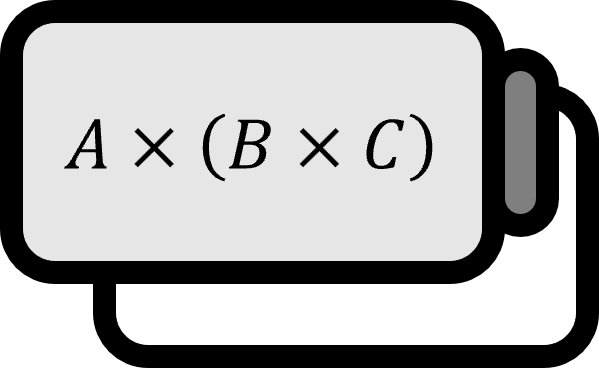Azimuth and Direction Cosines
Definition1
Suppose we are given a three-dimensional vector $\mathbf{a} = (a_{1}, a_{2}, a_{3})$. The angles that $\mathbf{a}$ forms with the $x$-, $y$-, and $z$-axes are denoted as $\alpha$, $\beta$, and $\gamma$, respectively. These are called direction angles.

The cosines of the direction angles $\cos \alpha$, $\cos \beta$, and $\cos \gamma$ are called direction cosines.
Properties
From the definition of direction angles and the properties of the dot product, the direction cosines are given by the following.
$$ \cos \alpha = \dfrac{\mathbf{a} \cdot \mathbf{i}}{|\mathbf{a}| |\mathbf{i}|} = \dfrac{a_{1}}{|\mathbf{a}|},\quad \cos \beta = \dfrac{\mathbf{a} \cdot \mathbf{j}}{|\mathbf{a}| |\mathbf{j}|} = \dfrac{a_{2}}{|\mathbf{a}|},\quad \cos \gamma = \dfrac{\mathbf{a} \cdot \mathbf{k}}{|\mathbf{a}| |\mathbf{k}|} = \dfrac{a_{3}}{|\mathbf{a}|} $$
Additionally, the following holds true.
$$ \cos^{2} \alpha + \cos^{2} \beta + \cos^{2} \gamma = \dfrac{a_{1}^{2} + a_{2}^{2} + a_{3}^{2}}{|\mathbf{a}|^{2}}= 1 $$
The vector $\mathbf{a}$ can be expressed as follows.
$$ \begin{align*} \mathbf{a} &= (a_{1}, a_{2}, a_{3}) \\ &= (|\mathbf{a}|\cos \alpha, |\mathbf{a}|\cos \beta, |\mathbf{a}|\cos \gamma) \\ &= |\mathbf{a}|(\cos \alpha, \cos \beta, \cos \gamma) \end{align*} $$
Therefore, a unit vector in the same direction as $\mathbf{a}$ is as follows.
$$ \dfrac{\mathbf{a}}{|\mathbf{a}|} = (\cos \alpha, \cos \beta, \cos \gamma) $$
James Stewart, Daniel Clegg, and Saleem Watson, Calculus (early transcendentals, 9E), p850 ↩︎
